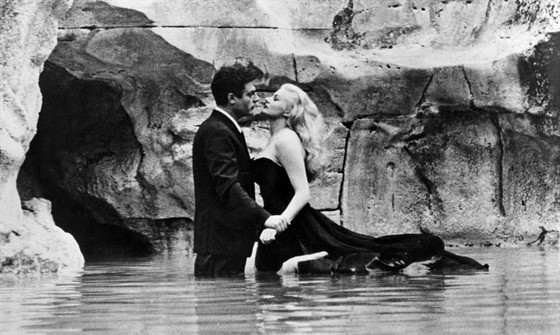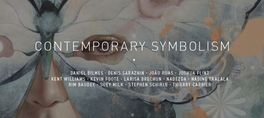CIAO, MARCELLO!
AN HOMAGE TO MARCELLO MASTROIANNI
Cinema Italia San Francisco presents an overdue homage to a great star 60 years after the making of "La Dolce Vita" with the projection of restored digital and rare 35 mm films back on the big screen of San Francisco's legendary Castro Theatre. Nicknamed the "Latin Lover", this quintessential leading man was truly a a giant of the golden age of Italian cinema. He was embraced for his lighthearted, magnetic, and unassuming ways in diverse roles. Join us in this loving cinematic tribute to the talented, transformative, and chameleonic Marcello Mastroianni. Presented in collaboration with the Leonardo da Vinci Society, the Italian Consulate General, and the Italian Cultural Institute.
Schedule:
YESTERDAY, TODAY AND TOMORROW at 10am
Mastroianni + Loren x 3: the duo light up this breezy triptych of tales about love, sex, and class. In the first, Mastroianni is the harried husband of a sexually voracious Loren, who’s staying pregnant to stay out of prison; in the second, they’re a pair of sophisticates tooling through Milan in a Rolls-Royce; and in the third, he’s the gotta-have-it client whose trysts with her high-priced prostitute are constantly thwarted (Loren’s sultry striptease is justly famous, but Mastroianni’s wolf-howls of delight put the scene over the top). De Sica’s Oscar-winning charmer deftly combines naughty bedroom comedy with neorealist social commentary. (Film Society of Lincoln Center) Mastroianni + Loren x 3: the duo light up this breezy triptych of tales about love, sex, and class. In the first, Mastroianni is the harried husband of a sexually voracious Loren, who’s staying pregnant to stay out of prison; in the second, they’re a pair of sophisticates tooling through Milan in a Rolls-Royce; and in the third, he’s the gotta-have-it client whose trysts with her high-priced prostitute are constantly thwarted (Loren’s sultry striptease is justly famous, but Mastroianni’s wolf-howls of delight put the scene over the top). De Sica’s Oscar-winning charmer deftly combines naughty bedroom comedy with neorealist social commentary. (Texts written by the Film Society of Lincoln Center) Winner of the Best Foreign Language Film Oscar® at the 1965 Academy Awards®. Directed by Vittorio De Sica with Sophia Loren (1963, 119 min, BD)
8½ at 1pm
In Federico Fellini’s monumental landmark of Italian cinema, Mastroianni anchors an irresistible mélange of behind-the-scenes farce, marital tragicomedy, surrealist theological vignettes, poeticized flashbacks, and elaborate projections of private fantasies. Mastroianni plays hotshot filmmaker Guido Anselmi, struggling to get his latest passion project off the ground, while juggling relationships with various women. Notable for its bracing formal modernism and wry self-awareness, 8½ is at its heart a compassionate tribute to the wrenching aches and pains, and ephemeral ecstasies, of the creative process. The film features archetypal yet emotionally precise performances by Anouk Aimée, Sandra Milo, and Claudia Cardinale, as his wife, his mistress, and his idealized muse, alongside the colorful supporting roster of producers, journalists, movie stars, and clergy who swarm around Guido as he struggles to actualize his ambitious magnum opus. (Texts written by the Film Society of Lincoln Center) Winner of the Best Foreign Language Film Oscar® at the 1964 Academy Awards®. Directed by Federico Fellini with Claudia Cardinale, Anouk Aimèe and Sandra Milo (1963, 138 min, 35 mm)
A SPECIAL DAY at 3:30pm
May 8, 1938: all of Rome is turning out to see the spectacle of Hitler’s visit to Italy. Among the few not attending are a harried housewife and mother-of-six (Sophia Loren) and her across-the-way neighbor (Mastroianni, Oscar-nominated), a suicidal ex-radio announcer. She’s a conservative Mussolini supporter; he’s a homosexual enemy of the state. But after a chance meeting, the two share a life-changing day that will challenge their assumptions about people, politics, and sexuality. Gorgeously photographed in creamy sepia tones and driven by two virtuoso central performances, this tender, daring chamber drama is a more-relevant-than-ever look at fascism’s human cost. (Texts written by the Film Society of Lincoln Center) Winner of Best Foreign Film at the 1978 Golden Globes. Directed by Ettore Scola with Sophia Loren (1977, 106 min, 35 mm)
LA DOLCE VITA at 6pm
Fellini’s panoramic portrait of contemporary Roman decadence — parties, paparazzi, and promiscuous sex — is one of world cinema’s most fêted films and one of the key works in the great director’s canon. With La Dolce Vita, Fellini inaugurated the cycle of ambitious, visually extravagant, episodic, self-conscious, autobiographical works that cemented his reputation as an artist of international stature and gave rise to the term “Felliniesque.” Marcello Mastroianni, is one of his signature roles, is the film’s protagonist, a world-weary gossip columnist and would-be serious writer utterly compromised by the amorality and debauchery of the New Babylon in which he lives. Anita Ekberg co-stars as the latest Hollywood sex goddess, come to Italy to star in a Biblical epic; her foray into the Trevi Fountain is one of modern cinema’s most iconic scenes. The film’s opening sequence is almost as celebrated: a huge statue of Christ being transported by helicopter over the rooftops of Rome. “Oh look, there's Jesus!” exclaims a bikinied woman sunbathing on a terrace. La Dolce Vita’s Rome is a phantasmagoria of such contrasts: the sacred and the profane, the spiritual and the material, the Christian and the pagan, the miraculous and the orgiastic. The film was a great succès de scandale in its day; the Vatican denounced it as disgusting and immoral, and even Fellini’s mother was given to ask her son, “Why did you make such a picture?” (Texts written by The Cinematheque, Vancouver) Winner of the Palme d’Or at the 1960 Festival de Cannes. Directed by Federico Fellini with Anita Ekberg (1960, 173 min, DCP).
DIVORCE ITALIAN STYLE at 10:30pm
Marcello Mastroianni plays an impoverished, bored Sicilian aristocrat who hatches an elaborate scheme to murder his wife after inveigling her into an adulterous affair. According to Italian custom, he would be justified in killing her, by defending his “honor,” (divorce being forbidden in Italy). Conveniently he would be then free to marry his young, beautiful cousin, who seems to return his affections, right up to the film’s final, wicked shot. Director Germi, who co-wrote the slyly clever script with Ennio De Concini and Alfredo Gianetti, had a background in neorealist Italian dramas, and that would serve him well in his sendup of the Catholic country’s cultural habits and social mores. Mastroianni’s voiceover narration offers wry commentary on those traditions, effectively skewered by Germi. Bosley Crowther in the New York Times called it “a dandy, satiric farce” and Time lauded Germi for “something wildly, wickedly, wonderfully funny. He has applied a cunning hotfoot to the world’s biggest boot.” (Texts written by Laemmle) Winner of Best Screenplay at the 1963 Academy Awards® and Winner of Best Foreign Film and Best Actor at the 1963 Golden Globes. Directed by Pietro Germi with Daniela Rocca and Stefania Sandrelli. (1961, 105 min, 35 mm)
show less
AN HOMAGE TO MARCELLO MASTROIANNI
Cinema Italia San Francisco presents an overdue homage to a great star 60 years after the making of "La Dolce Vita" with the projection of restored digital and rare 35 mm films back on the big screen of San Francisco's legendary Castro Theatre. Nicknamed the "Latin Lover", this quintessential leading man was truly a a giant of the golden age of Italian cinema. He was embraced for his lighthearted, magnetic, and unassuming ways in diverse roles. Join us in this loving cinematic tribute to the talented, transformative, and chameleonic Marcello Mastroianni. Presented in collaboration with the Leonardo da Vinci Society, the Italian Consulate General, and the Italian Cultural Institute.
Schedule:
YESTERDAY, TODAY AND TOMORROW at 10am
Mastroianni + Loren x 3: the duo light up this breezy triptych of tales about love, sex, and class. In the first, Mastroianni is the harried husband of a sexually voracious Loren, who’s staying pregnant to stay out of prison; in the second, they’re a pair of sophisticates tooling through Milan in a Rolls-Royce; and in the third, he’s the gotta-have-it client whose trysts with her high-priced prostitute are constantly thwarted (Loren’s sultry striptease is justly famous, but Mastroianni’s wolf-howls of delight put the scene over the top). De Sica’s Oscar-winning charmer deftly combines naughty bedroom comedy with neorealist social commentary. (Film Society of Lincoln Center) Mastroianni + Loren x 3: the duo light up this breezy triptych of tales about love, sex, and class. In the first, Mastroianni is the harried husband of a sexually voracious Loren, who’s staying pregnant to stay out of prison; in the second, they’re a pair of sophisticates tooling through Milan in a Rolls-Royce; and in the third, he’s the gotta-have-it client whose trysts with her high-priced prostitute are constantly thwarted (Loren’s sultry striptease is justly famous, but Mastroianni’s wolf-howls of delight put the scene over the top). De Sica’s Oscar-winning charmer deftly combines naughty bedroom comedy with neorealist social commentary. (Texts written by the Film Society of Lincoln Center) Winner of the Best Foreign Language Film Oscar® at the 1965 Academy Awards®. Directed by Vittorio De Sica with Sophia Loren (1963, 119 min, BD)
8½ at 1pm
In Federico Fellini’s monumental landmark of Italian cinema, Mastroianni anchors an irresistible mélange of behind-the-scenes farce, marital tragicomedy, surrealist theological vignettes, poeticized flashbacks, and elaborate projections of private fantasies. Mastroianni plays hotshot filmmaker Guido Anselmi, struggling to get his latest passion project off the ground, while juggling relationships with various women. Notable for its bracing formal modernism and wry self-awareness, 8½ is at its heart a compassionate tribute to the wrenching aches and pains, and ephemeral ecstasies, of the creative process. The film features archetypal yet emotionally precise performances by Anouk Aimée, Sandra Milo, and Claudia Cardinale, as his wife, his mistress, and his idealized muse, alongside the colorful supporting roster of producers, journalists, movie stars, and clergy who swarm around Guido as he struggles to actualize his ambitious magnum opus. (Texts written by the Film Society of Lincoln Center) Winner of the Best Foreign Language Film Oscar® at the 1964 Academy Awards®. Directed by Federico Fellini with Claudia Cardinale, Anouk Aimèe and Sandra Milo (1963, 138 min, 35 mm)
A SPECIAL DAY at 3:30pm
May 8, 1938: all of Rome is turning out to see the spectacle of Hitler’s visit to Italy. Among the few not attending are a harried housewife and mother-of-six (Sophia Loren) and her across-the-way neighbor (Mastroianni, Oscar-nominated), a suicidal ex-radio announcer. She’s a conservative Mussolini supporter; he’s a homosexual enemy of the state. But after a chance meeting, the two share a life-changing day that will challenge their assumptions about people, politics, and sexuality. Gorgeously photographed in creamy sepia tones and driven by two virtuoso central performances, this tender, daring chamber drama is a more-relevant-than-ever look at fascism’s human cost. (Texts written by the Film Society of Lincoln Center) Winner of Best Foreign Film at the 1978 Golden Globes. Directed by Ettore Scola with Sophia Loren (1977, 106 min, 35 mm)
LA DOLCE VITA at 6pm
Fellini’s panoramic portrait of contemporary Roman decadence — parties, paparazzi, and promiscuous sex — is one of world cinema’s most fêted films and one of the key works in the great director’s canon. With La Dolce Vita, Fellini inaugurated the cycle of ambitious, visually extravagant, episodic, self-conscious, autobiographical works that cemented his reputation as an artist of international stature and gave rise to the term “Felliniesque.” Marcello Mastroianni, is one of his signature roles, is the film’s protagonist, a world-weary gossip columnist and would-be serious writer utterly compromised by the amorality and debauchery of the New Babylon in which he lives. Anita Ekberg co-stars as the latest Hollywood sex goddess, come to Italy to star in a Biblical epic; her foray into the Trevi Fountain is one of modern cinema’s most iconic scenes. The film’s opening sequence is almost as celebrated: a huge statue of Christ being transported by helicopter over the rooftops of Rome. “Oh look, there's Jesus!” exclaims a bikinied woman sunbathing on a terrace. La Dolce Vita’s Rome is a phantasmagoria of such contrasts: the sacred and the profane, the spiritual and the material, the Christian and the pagan, the miraculous and the orgiastic. The film was a great succès de scandale in its day; the Vatican denounced it as disgusting and immoral, and even Fellini’s mother was given to ask her son, “Why did you make such a picture?” (Texts written by The Cinematheque, Vancouver) Winner of the Palme d’Or at the 1960 Festival de Cannes. Directed by Federico Fellini with Anita Ekberg (1960, 173 min, DCP).
DIVORCE ITALIAN STYLE at 10:30pm
Marcello Mastroianni plays an impoverished, bored Sicilian aristocrat who hatches an elaborate scheme to murder his wife after inveigling her into an adulterous affair. According to Italian custom, he would be justified in killing her, by defending his “honor,” (divorce being forbidden in Italy). Conveniently he would be then free to marry his young, beautiful cousin, who seems to return his affections, right up to the film’s final, wicked shot. Director Germi, who co-wrote the slyly clever script with Ennio De Concini and Alfredo Gianetti, had a background in neorealist Italian dramas, and that would serve him well in his sendup of the Catholic country’s cultural habits and social mores. Mastroianni’s voiceover narration offers wry commentary on those traditions, effectively skewered by Germi. Bosley Crowther in the New York Times called it “a dandy, satiric farce” and Time lauded Germi for “something wildly, wickedly, wonderfully funny. He has applied a cunning hotfoot to the world’s biggest boot.” (Texts written by Laemmle) Winner of Best Screenplay at the 1963 Academy Awards® and Winner of Best Foreign Film and Best Actor at the 1963 Golden Globes. Directed by Pietro Germi with Daniela Rocca and Stefania Sandrelli. (1961, 105 min, 35 mm)
CIAO, MARCELLO!
AN HOMAGE TO MARCELLO MASTROIANNI
Cinema Italia San Francisco presents an overdue homage to a great star 60 years after the making of "La Dolce Vita" with the projection of restored digital and rare 35 mm films back on the big screen of San Francisco's legendary Castro Theatre. Nicknamed the "Latin Lover", this quintessential leading man was truly a a giant of the golden age of Italian cinema. He was embraced for his lighthearted, magnetic, and unassuming ways in diverse roles. Join us in this loving cinematic tribute to the talented, transformative, and chameleonic Marcello Mastroianni. Presented in collaboration with the Leonardo da Vinci Society, the Italian Consulate General, and the Italian Cultural Institute.
Schedule:
YESTERDAY, TODAY AND TOMORROW at 10am
Mastroianni + Loren x 3: the duo light up this breezy triptych of tales about love, sex, and class. In the first, Mastroianni is the harried husband of a sexually voracious Loren, who’s staying pregnant to stay out of prison; in the second, they’re a pair of sophisticates tooling through Milan in a Rolls-Royce; and in the third, he’s the gotta-have-it client whose trysts with her high-priced prostitute are constantly thwarted (Loren’s sultry striptease is justly famous, but Mastroianni’s wolf-howls of delight put the scene over the top). De Sica’s Oscar-winning charmer deftly combines naughty bedroom comedy with neorealist social commentary. (Film Society of Lincoln Center) Mastroianni + Loren x 3: the duo light up this breezy triptych of tales about love, sex, and class. In the first, Mastroianni is the harried husband of a sexually voracious Loren, who’s staying pregnant to stay out of prison; in the second, they’re a pair of sophisticates tooling through Milan in a Rolls-Royce; and in the third, he’s the gotta-have-it client whose trysts with her high-priced prostitute are constantly thwarted (Loren’s sultry striptease is justly famous, but Mastroianni’s wolf-howls of delight put the scene over the top). De Sica’s Oscar-winning charmer deftly combines naughty bedroom comedy with neorealist social commentary. (Texts written by the Film Society of Lincoln Center) Winner of the Best Foreign Language Film Oscar® at the 1965 Academy Awards®. Directed by Vittorio De Sica with Sophia Loren (1963, 119 min, BD)
8½ at 1pm
In Federico Fellini’s monumental landmark of Italian cinema, Mastroianni anchors an irresistible mélange of behind-the-scenes farce, marital tragicomedy, surrealist theological vignettes, poeticized flashbacks, and elaborate projections of private fantasies. Mastroianni plays hotshot filmmaker Guido Anselmi, struggling to get his latest passion project off the ground, while juggling relationships with various women. Notable for its bracing formal modernism and wry self-awareness, 8½ is at its heart a compassionate tribute to the wrenching aches and pains, and ephemeral ecstasies, of the creative process. The film features archetypal yet emotionally precise performances by Anouk Aimée, Sandra Milo, and Claudia Cardinale, as his wife, his mistress, and his idealized muse, alongside the colorful supporting roster of producers, journalists, movie stars, and clergy who swarm around Guido as he struggles to actualize his ambitious magnum opus. (Texts written by the Film Society of Lincoln Center) Winner of the Best Foreign Language Film Oscar® at the 1964 Academy Awards®. Directed by Federico Fellini with Claudia Cardinale, Anouk Aimèe and Sandra Milo (1963, 138 min, 35 mm)
A SPECIAL DAY at 3:30pm
May 8, 1938: all of Rome is turning out to see the spectacle of Hitler’s visit to Italy. Among the few not attending are a harried housewife and mother-of-six (Sophia Loren) and her across-the-way neighbor (Mastroianni, Oscar-nominated), a suicidal ex-radio announcer. She’s a conservative Mussolini supporter; he’s a homosexual enemy of the state. But after a chance meeting, the two share a life-changing day that will challenge their assumptions about people, politics, and sexuality. Gorgeously photographed in creamy sepia tones and driven by two virtuoso central performances, this tender, daring chamber drama is a more-relevant-than-ever look at fascism’s human cost. (Texts written by the Film Society of Lincoln Center) Winner of Best Foreign Film at the 1978 Golden Globes. Directed by Ettore Scola with Sophia Loren (1977, 106 min, 35 mm)
LA DOLCE VITA at 6pm
Fellini’s panoramic portrait of contemporary Roman decadence — parties, paparazzi, and promiscuous sex — is one of world cinema’s most fêted films and one of the key works in the great director’s canon. With La Dolce Vita, Fellini inaugurated the cycle of ambitious, visually extravagant, episodic, self-conscious, autobiographical works that cemented his reputation as an artist of international stature and gave rise to the term “Felliniesque.” Marcello Mastroianni, is one of his signature roles, is the film’s protagonist, a world-weary gossip columnist and would-be serious writer utterly compromised by the amorality and debauchery of the New Babylon in which he lives. Anita Ekberg co-stars as the latest Hollywood sex goddess, come to Italy to star in a Biblical epic; her foray into the Trevi Fountain is one of modern cinema’s most iconic scenes. The film’s opening sequence is almost as celebrated: a huge statue of Christ being transported by helicopter over the rooftops of Rome. “Oh look, there's Jesus!” exclaims a bikinied woman sunbathing on a terrace. La Dolce Vita’s Rome is a phantasmagoria of such contrasts: the sacred and the profane, the spiritual and the material, the Christian and the pagan, the miraculous and the orgiastic. The film was a great succès de scandale in its day; the Vatican denounced it as disgusting and immoral, and even Fellini’s mother was given to ask her son, “Why did you make such a picture?” (Texts written by The Cinematheque, Vancouver) Winner of the Palme d’Or at the 1960 Festival de Cannes. Directed by Federico Fellini with Anita Ekberg (1960, 173 min, DCP).
DIVORCE ITALIAN STYLE at 10:30pm
Marcello Mastroianni plays an impoverished, bored Sicilian aristocrat who hatches an elaborate scheme to murder his wife after inveigling her into an adulterous affair. According to Italian custom, he would be justified in killing her, by defending his “honor,” (divorce being forbidden in Italy). Conveniently he would be then free to marry his young, beautiful cousin, who seems to return his affections, right up to the film’s final, wicked shot. Director Germi, who co-wrote the slyly clever script with Ennio De Concini and Alfredo Gianetti, had a background in neorealist Italian dramas, and that would serve him well in his sendup of the Catholic country’s cultural habits and social mores. Mastroianni’s voiceover narration offers wry commentary on those traditions, effectively skewered by Germi. Bosley Crowther in the New York Times called it “a dandy, satiric farce” and Time lauded Germi for “something wildly, wickedly, wonderfully funny. He has applied a cunning hotfoot to the world’s biggest boot.” (Texts written by Laemmle) Winner of Best Screenplay at the 1963 Academy Awards® and Winner of Best Foreign Film and Best Actor at the 1963 Golden Globes. Directed by Pietro Germi with Daniela Rocca and Stefania Sandrelli. (1961, 105 min, 35 mm)
read more
AN HOMAGE TO MARCELLO MASTROIANNI
Cinema Italia San Francisco presents an overdue homage to a great star 60 years after the making of "La Dolce Vita" with the projection of restored digital and rare 35 mm films back on the big screen of San Francisco's legendary Castro Theatre. Nicknamed the "Latin Lover", this quintessential leading man was truly a a giant of the golden age of Italian cinema. He was embraced for his lighthearted, magnetic, and unassuming ways in diverse roles. Join us in this loving cinematic tribute to the talented, transformative, and chameleonic Marcello Mastroianni. Presented in collaboration with the Leonardo da Vinci Society, the Italian Consulate General, and the Italian Cultural Institute.
Schedule:
YESTERDAY, TODAY AND TOMORROW at 10am
Mastroianni + Loren x 3: the duo light up this breezy triptych of tales about love, sex, and class. In the first, Mastroianni is the harried husband of a sexually voracious Loren, who’s staying pregnant to stay out of prison; in the second, they’re a pair of sophisticates tooling through Milan in a Rolls-Royce; and in the third, he’s the gotta-have-it client whose trysts with her high-priced prostitute are constantly thwarted (Loren’s sultry striptease is justly famous, but Mastroianni’s wolf-howls of delight put the scene over the top). De Sica’s Oscar-winning charmer deftly combines naughty bedroom comedy with neorealist social commentary. (Film Society of Lincoln Center) Mastroianni + Loren x 3: the duo light up this breezy triptych of tales about love, sex, and class. In the first, Mastroianni is the harried husband of a sexually voracious Loren, who’s staying pregnant to stay out of prison; in the second, they’re a pair of sophisticates tooling through Milan in a Rolls-Royce; and in the third, he’s the gotta-have-it client whose trysts with her high-priced prostitute are constantly thwarted (Loren’s sultry striptease is justly famous, but Mastroianni’s wolf-howls of delight put the scene over the top). De Sica’s Oscar-winning charmer deftly combines naughty bedroom comedy with neorealist social commentary. (Texts written by the Film Society of Lincoln Center) Winner of the Best Foreign Language Film Oscar® at the 1965 Academy Awards®. Directed by Vittorio De Sica with Sophia Loren (1963, 119 min, BD)
8½ at 1pm
In Federico Fellini’s monumental landmark of Italian cinema, Mastroianni anchors an irresistible mélange of behind-the-scenes farce, marital tragicomedy, surrealist theological vignettes, poeticized flashbacks, and elaborate projections of private fantasies. Mastroianni plays hotshot filmmaker Guido Anselmi, struggling to get his latest passion project off the ground, while juggling relationships with various women. Notable for its bracing formal modernism and wry self-awareness, 8½ is at its heart a compassionate tribute to the wrenching aches and pains, and ephemeral ecstasies, of the creative process. The film features archetypal yet emotionally precise performances by Anouk Aimée, Sandra Milo, and Claudia Cardinale, as his wife, his mistress, and his idealized muse, alongside the colorful supporting roster of producers, journalists, movie stars, and clergy who swarm around Guido as he struggles to actualize his ambitious magnum opus. (Texts written by the Film Society of Lincoln Center) Winner of the Best Foreign Language Film Oscar® at the 1964 Academy Awards®. Directed by Federico Fellini with Claudia Cardinale, Anouk Aimèe and Sandra Milo (1963, 138 min, 35 mm)
A SPECIAL DAY at 3:30pm
May 8, 1938: all of Rome is turning out to see the spectacle of Hitler’s visit to Italy. Among the few not attending are a harried housewife and mother-of-six (Sophia Loren) and her across-the-way neighbor (Mastroianni, Oscar-nominated), a suicidal ex-radio announcer. She’s a conservative Mussolini supporter; he’s a homosexual enemy of the state. But after a chance meeting, the two share a life-changing day that will challenge their assumptions about people, politics, and sexuality. Gorgeously photographed in creamy sepia tones and driven by two virtuoso central performances, this tender, daring chamber drama is a more-relevant-than-ever look at fascism’s human cost. (Texts written by the Film Society of Lincoln Center) Winner of Best Foreign Film at the 1978 Golden Globes. Directed by Ettore Scola with Sophia Loren (1977, 106 min, 35 mm)
LA DOLCE VITA at 6pm
Fellini’s panoramic portrait of contemporary Roman decadence — parties, paparazzi, and promiscuous sex — is one of world cinema’s most fêted films and one of the key works in the great director’s canon. With La Dolce Vita, Fellini inaugurated the cycle of ambitious, visually extravagant, episodic, self-conscious, autobiographical works that cemented his reputation as an artist of international stature and gave rise to the term “Felliniesque.” Marcello Mastroianni, is one of his signature roles, is the film’s protagonist, a world-weary gossip columnist and would-be serious writer utterly compromised by the amorality and debauchery of the New Babylon in which he lives. Anita Ekberg co-stars as the latest Hollywood sex goddess, come to Italy to star in a Biblical epic; her foray into the Trevi Fountain is one of modern cinema’s most iconic scenes. The film’s opening sequence is almost as celebrated: a huge statue of Christ being transported by helicopter over the rooftops of Rome. “Oh look, there's Jesus!” exclaims a bikinied woman sunbathing on a terrace. La Dolce Vita’s Rome is a phantasmagoria of such contrasts: the sacred and the profane, the spiritual and the material, the Christian and the pagan, the miraculous and the orgiastic. The film was a great succès de scandale in its day; the Vatican denounced it as disgusting and immoral, and even Fellini’s mother was given to ask her son, “Why did you make such a picture?” (Texts written by The Cinematheque, Vancouver) Winner of the Palme d’Or at the 1960 Festival de Cannes. Directed by Federico Fellini with Anita Ekberg (1960, 173 min, DCP).
DIVORCE ITALIAN STYLE at 10:30pm
Marcello Mastroianni plays an impoverished, bored Sicilian aristocrat who hatches an elaborate scheme to murder his wife after inveigling her into an adulterous affair. According to Italian custom, he would be justified in killing her, by defending his “honor,” (divorce being forbidden in Italy). Conveniently he would be then free to marry his young, beautiful cousin, who seems to return his affections, right up to the film’s final, wicked shot. Director Germi, who co-wrote the slyly clever script with Ennio De Concini and Alfredo Gianetti, had a background in neorealist Italian dramas, and that would serve him well in his sendup of the Catholic country’s cultural habits and social mores. Mastroianni’s voiceover narration offers wry commentary on those traditions, effectively skewered by Germi. Bosley Crowther in the New York Times called it “a dandy, satiric farce” and Time lauded Germi for “something wildly, wickedly, wonderfully funny. He has applied a cunning hotfoot to the world’s biggest boot.” (Texts written by Laemmle) Winner of Best Screenplay at the 1963 Academy Awards® and Winner of Best Foreign Film and Best Actor at the 1963 Golden Globes. Directed by Pietro Germi with Daniela Rocca and Stefania Sandrelli. (1961, 105 min, 35 mm)
show less
Date/Times:
Castro Theatre
1 Upcoming Events
429 Castro Street, San Francisco, CA 94114
The Best Events
Every Week in Your Inbox
From Our Sponsors
UPCOMING EVENTS
Great suggestion! We'll be in touch.
Event reviewed successfully.









